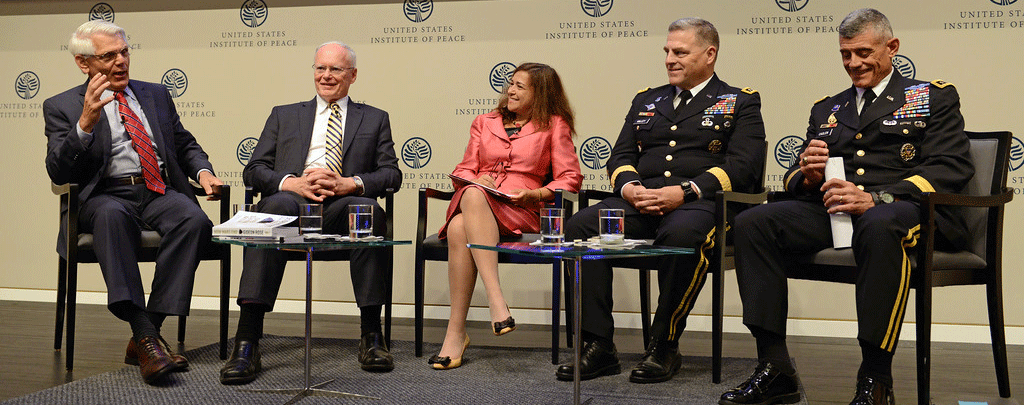Ending Wars to Build Peace
Conflict Termination Workshop
Designing a conflict termination strategy is an essential but often overlooked component of warfighting. Improperly planned or incorrectly implemented, a failure to effectively terminate a conflict will leave open the original issues that brought on the war and likely create the conditions for future conflict.

The famous British military theorist, B.H. Liddell-Hart, observed after World War I that the logical conclusion of any war is peace. In his 1976 commentary to Clausewitz's On War Bernard Brodie wrote "… war in all its phases must be rationally guided by meaningful political purposes." In the last century the United States has fought many wars and not one has resulted in its intended outcome or the establishment of a peaceful world order, but in reality has left us to deal with many unintended consequences.
The U.S. Institute of Peace (USIP), U.S. Military Academy's Center for the Study of Civil-Military Operations and RAND Corporation hosted an event July 14th that featured notable experts who shared their observations and concerns about the issue of war termination, its planning, transition and challenges.
Speakers
Gideon Rose
Author How Wars End
Lieutenant General Robert Caslen
Superintendent of the U.S. Military Academy
Ambassador Jim Jeffrey
Former U.S. Ambassador to Iraq
The Honorable James Kunder
Former Deputy Administrator, U.S. Agency for International Development
Lieutenant General Mark Milley
Commander, U.S. Army III Corps
Dr. Rick Brennan
Senior Political Scientist, RAND
Tara Sonenshine, Moderator
Distinguished Fellow, George Washington University



